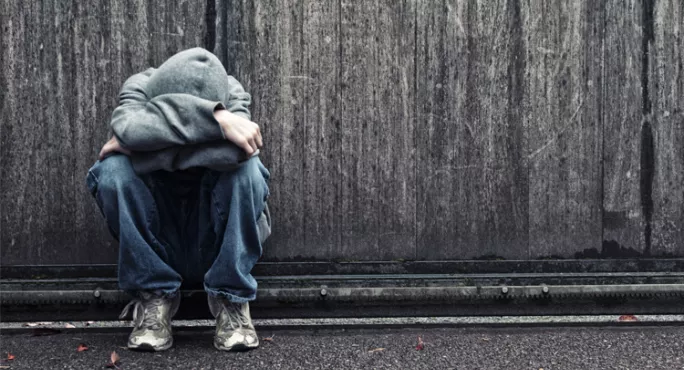- Home
- UK pupils among the world’s unhappiest
UK pupils among the world’s unhappiest

Pupils in the UK are among the least happy in the world, according to new data released by the influential Pisa (Programme for International Student Assessment) survey today.
According to the report Students’ Well-being, around one in six (15.6 per cent) of 15-year-old pupils in the UK say that they are unhappy with their life - putting the UK 38th out of the 48 countries from which the data was collected.
To measure happiness, students participating in Pisa 2015 were asked to rate their life on a scale from 0 to 10, where 0 means the worst possible life and 10 means the best possible life.
Tests take their toll
On average, across developed countries students reported a level of 7.3 - but in the UK it was 6.98. The Dominican Republic had the happiest students.
Pupils in Eastern Asian countries who were top performers in the Pisa academic tests - China, Japan, South Korea, Hong Kong, Taiwan and Macao - were all less happy than those in the UK.
The survey had no data on pupils’ happiness in Singapore, which topped the Pisa tables in science, maths and reading in 2015. Pupils in Turkey were the least happy pupils in the world.
This is the first time Pisa has published a report on students’ wellbeing. It also revealed that pupils in the UK were more likely to say they were worried about tests than pupils in almost all other countries.
The study found 71.9 per cent of UK pupils were anxious about tests, even when they were well-prepared for them, compared to 55 per cent of students on average across developed Organisation for Economic Cooperation and Development (OECD) countries.
The answers to this question suggest that testing anxiety in the UK is worse than in Asian systems known for high pressure exams and even student suicides.
South Korea, China, Japan, Hong Kong, Taiwan and Macao all did better on the measure. The UK was placed 8th worst out of 56 countries.
Teacher appeals ‘can make students feel threatened’
“Teachers can reduce anxiety and stress by regularly teaching students effective study methods,” the report states. “The way teachers communicate to students about homework and tests is important too.
“Under pressure to improve their students’ test performance, teachers may emphasise the need to do well on a test to gain access to better jobs or university later on.
“But these appeals to students’ fears can make students feel threatened - and make them much more anxious.”
Geoff Barton, general secretary of the Association of School and College Leaders, said: “What we do in our country is use tests for a number of purposes we use them to test young people and see how they are doing. But we also use them to judge teachers and schools and because of this they become high-stakes tests.
“As soon as you have high-stakes testing, then everyone becomes more anxious. I’m not surprised that if teachers, schools and governors are judged, that ripples back to youngsters. There is a huge cultural issue here.
“I am sure there are some teachers who can reduce anxiety and some who increase it. But there are things beyond a teacher’s control.
“All a teacher can do is teach children as well as possible and help children keep tests in perspective, reassure them if they do badly and celebrate if they do well.”
Too much time online
The UK also had high levels of internet use - 15-year-olds spent an average of 188 minutes online in the week before or after school, compared to an international average of 146 minutes.
And 24 per cent of UK pupils spent more than six hours online on weekdays - a level of usage that the report said was associated with pupils being more unhappy and less likely to perform well on the Pisa science test. Across the developed countries, the average was 16.2 per cent of pupils.
In the UK, pupils who spent more than six hours online had an average science test score of 483, compared to 540 who spent one to two hours online. The average score for the UK in science was 509.
“These findings show how teachers, schools and parents can make a real difference to children’s wellbeing,” said Gabriela Ramos, OECD chief of staff. “Together they can help young people develop a sense of control over their future and the resilience they need to be successful in life.
“There is no secret: you perform better if you feel valued, if you feel well treated, if you are given a hand to succeed.”
Pisa, which is run by the OECD, ranks how 15-year-olds compare across the world in maths, reading and science every three years. In 2015, more than 500,000 students took part in 72 countries.
Want to keep up with the latest education news and opinion? Follow Tes FE News on Twitter, like us on Facebook and follow us on LinkedIn
Keep reading for just £1 per month
You've reached your limit of free articles this month. Subscribe for £1 per month for three months and get:
- Unlimited access to all Tes magazine content
- Exclusive subscriber-only stories
- Award-winning email newsletters



